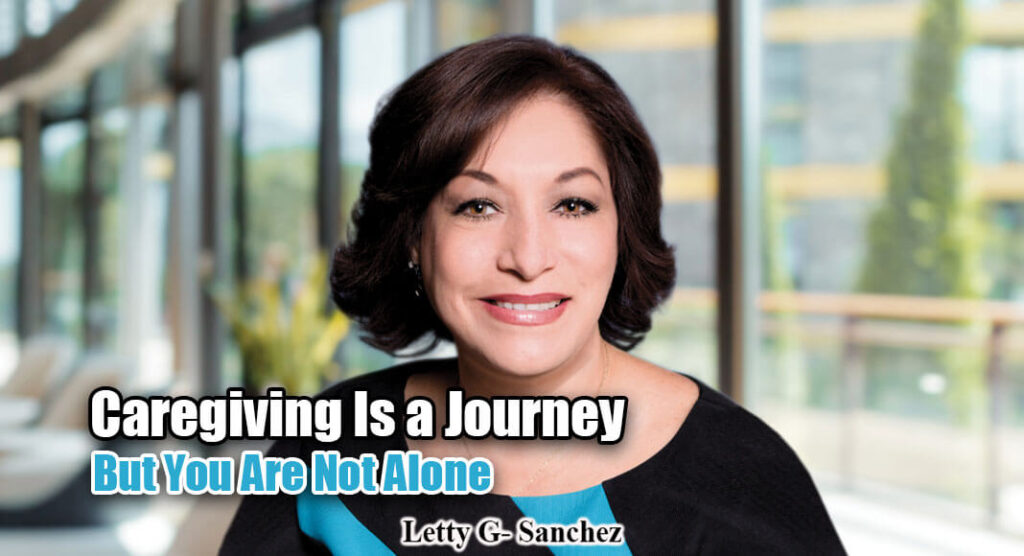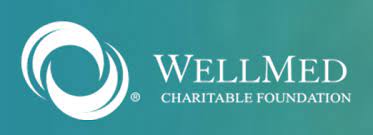
Regional Operations Manager-RGV
WellMed Charitable Foundation
Courtesy photo
Mega Doctor News
By Roberto Hugo Gonzalez
People need to know about WellMed Charitable Foundation. This is a local and unique nonprofit organization provides vital services for the community in the Rio Grande Valley. Caregiver SOS is a program of the WellMed Charitable Foundation supporting seniors and their caregivers offering a variety of programs.
Caregiver SOS offers educational programs; caregiver coaching; support groups; a stress management program; and an annual educational conference in Nov.
Letty G. Sanchez, Regional Operations Manager-RGV, WellMed Medical Management, Inc. told Mega Doctor News that the Caregiver SOS program offers education and training for residents of the Rio Grande Valley.
“Family caregivers are all over the Rio Grande Valley and we invite them to call us.” She said, “Caregivers are the adult children trying to balance caring for a parent but also caring for a child with special needs. Caregivers are also the elderly spouses caring for a spouse with illnesses that are hard to manage or require significant care as in the case of cancer; post-stroke; heart disease; or Alzheimer’s Disease to mention a few.”
“There are so many things that caregivers do while caring for their loved one. It can be as simple as picking up medication from the pharmacy or driving them to their doctor’s appointment. It can also be more challenging, like hands-on care every day from wound treatment, giving them the medication through their G-tubes, and more.”
Caregivers give their time and dedication without fear of sacrificing part of their life to help a loved one. Their primary interest is helping their loved ones to get better or least providing a good quality of life. Often, doing all these tasks have a price too and that can be the lack of personal time; financial hardship; emotional challenges; and their own health. Therefore, seeking caregiver education and support can be a lifeline for the caregiver.
“It is important to understand and to identify who is a caregiver,” Sanchez continued, “Sometimes, because we think it is expected of us, we don’t necessarily identify our self as a family caregiver.”
“As an example, we say, I take care of my husband because he’s my husband. I take care of my parents because they took care of me, and the problem with that is that many times that sense of obligation and not identifying the caregiver component, keep us from asking for help.” Sanchez stated.
You need to know that you are not alone. Caregiver SOS offers coaching with specialists available to you to provide information and support on better managing daily activities and improving care. Another unique program available to caregivers is the Stress-Busting Program (SBP) for Family Caregivers ™. This is an evidence-based program that provides support to family caregivers of persons with dementia or a chronic illness. This program it is proven to improve the quality of life of family caregivers who are providing care to an older loved one and also help caregivers manage their stress and cope better with their lives.
The Caregiver SOS program provides services at no cost for family members or friends, who are caring for an older loved one (60 years of age or older) afflicted chronic illnesses. Unfortunately, the majority of adults over 60 have one or several chronic illnesses. Many of those chronic illnesses are manageable, but many are complex and require understanding of the illness and the tools to deal with the healthcare system; making difficult decisions; and critical day-to-day tasks done by the family caregivers.
Caregiver SOS provides those tools that can make a positive impact for the caregivers. We offer one-on-one coaching by phone or in person, support groups and education and training. All programs are bilingual and at no cost to the caregivers.
Family caregiving can be a journey. It can last for weeks or months if it is an acute illness such as a COVID or a fall. However, it can also be a chronic illness that will not go away, such as Alzheimer’s and Parkinson’s Disease. When these illnesses are chronic, they might take weeks, months, or even years of caregiving therefore reaching out to Caregiver SOs can be one of the most important steps caregivers can take. Caregivers are not alone; Caregiver SOS can help.
The Area Agency on Aging LRGVDC partially funds this program.

For more information, call (956) 630-6667 or E-mail: caregiversos@wellmed.org.












